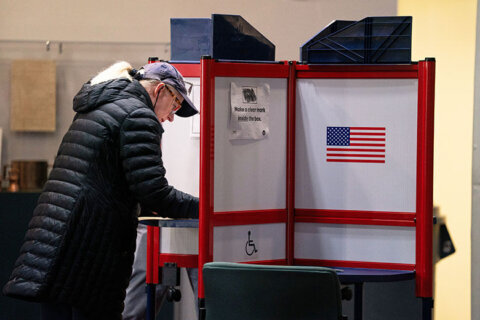WASHINGTON — For many people, the only souvenir of time spent in tiny Hopewell, Virginia is a paper speeding ticket.
The independent city, with a 2010 population of 22,591 is at the center of AAA’s latest effort to limit what the not-for-profit auto club calls “policing for profit,” with targeted speed enforcement.
“There are some communities in Virginia that use money from police tickets to make up a major part of their town’s finances,” says Lon Anderson, director of public and government relations for AAA Mid-Atlantic, which serves more than 3.4 million members from New Jersey to Virginia.
The most egregious example is a two-mile stretch of interstate highway that runs along the western side of the 10.8 square mile town.
“We dubbed the part of I-295 that runs through Hopewell a ‘million dollar mile,’ because they make almost 2 million dollars a year,” from revenue raised by speed traps, says Anderson.
Most law enforcement agencies say targeted speed enforcement is intended to induce drivers to slow down in areas where road design, volume, and conditions would preclude faster driving.
AAA says Hopewell’s enforcement program is conducted by 11 Sheriff’s deputies who work 14 hour shifts on the two-mile stretch of highway.
“The safety experts tell us there is nothing on that two miles of 295 to warrant such intense police scrutiny,” says Anderson.
Chief Deputy Steve Kephart of the Hopewell Sheriff’s Office told WTOP the agency would not be available for comment.
A budget amendment now before lawmakers in Virginia seeks to limit the amount of money a jurisdiction can keep from programs like the one in Hopewell.
Anderson says AAA has sent emails to 200,000 Virginia members which includes a link to send emails to Virginia lawmakers — in particular to budget conferees — “to let them know policing for profit shouldn’t be happening, and to please shut it down.
Anderson says the group “in no way condones speeding, but on the other hand, we don’t believe police should be used as a revenue stream.”
AAA has had “some good success” in previous years’ attempts to curtail the speed traps through Virginia’s budget process.
“The formulas that we used didn’t take enough money away from Hopewell to shut it down, unfortunately,” says Anderson. “But this year I think we’re a little bit more optimistic — we’ve got budget language addressing this issue in both house and senate versions, so it’s going to a budget conference.
Anderson says he believes lawmakers this year see what’s happening in Hopewell for what it is.
“There’s not a big safety issue on this part of 295, it’s a revenue issue,” says Anderson.








